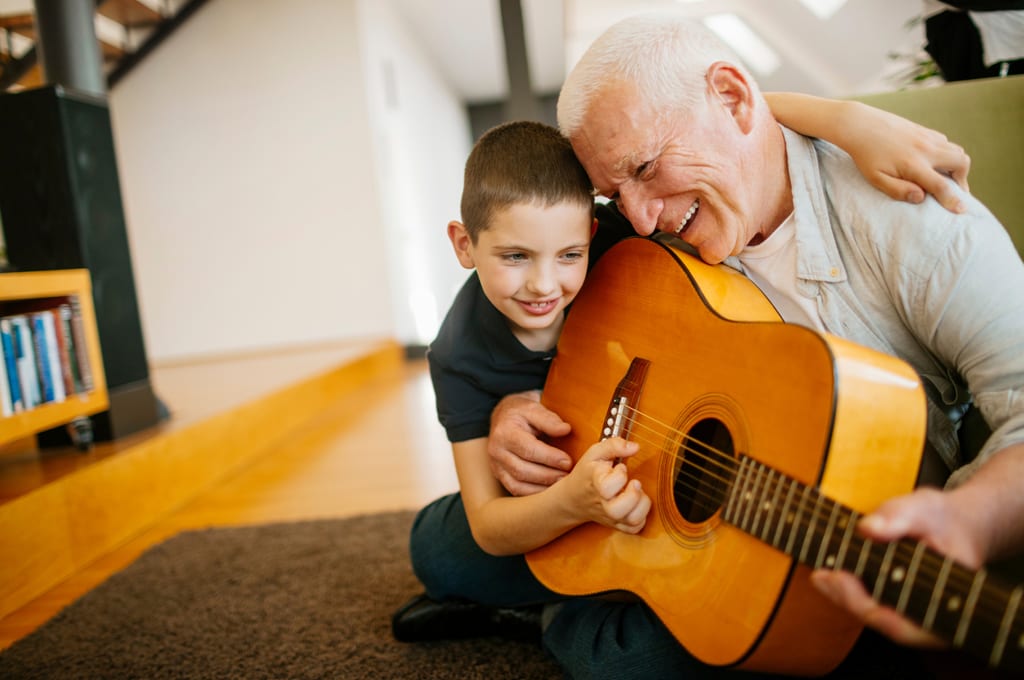Haven’t we all heard a song that brought back memories of a certain point in time?
Whether the song reminds us of a first love, a family holiday, or a beautiful day on the beach, we all get transported back by certain melodies. But for people that have later stage Alzheimer’s or Dementia, the luxury of memory is often completely gone. One of the most devastating parts about these illnesses is watching the person that you knew and loved transform into a completely different version of themselves. For the patient who is suffering, speaking can become almost impossible and forgetting friends and family is a common part of the disease progression.
But what if you could reconnect with your loved one by simply playing their favorite song and triggering a memory for them? That’s the promise of music therapy and the results can be amazing. People that have not been able to communicate for years are suddenly transported back to a previous time in their life and they almost reawaken. So, why do songs help them reconnect with the world around them and what exactly is music therapy? FirstLantic explores the topic and how it can help patients and their families.
“Music therapy is a target-oriented and purposeful activity in which therapists work with individuals or groups, using musical expression and the memories, feelings, and sensations it evokes”. The benefits include:
• Increased social interaction – singing or humming along to a tune is not unusual and it often encourages other types of communication
• Cognitive skill improvement – certain memories that were seemingly lost can be recalled, and some patients are able to speak about them
• Physical coordination – movement can be triggered by rhythmic beats
• Stress reduction – anxiety and feelings of frustration can be reduced substantially through music
While this all sounds impressive, it is impossible to really appreciate how transformative music therapy is until you watch these videos.
As John Carpente states, founder and executive director of the Rebecca Center for Music Therapy in New York, “Meeting individually and within a group, elder clients express themselves and recall the memories that music sparks and stimulates. By listening to live music and being involved in live music-making experiences, a greater quality of life is possible.”
And as Dr. Craig Beach, a forensic psychiatrist and founder of Outreach with Dr. Beach, notes, “Music therapy can also help younger people get on the road to both physical and mental wellness by reducing depression, lowering the heartrate, and even assisting in the treatment of post-traumatic stress disorder or PTSD.” So, if you or someone that you know is suffering, you are not alone. While music therapy may not help everyone, it is certainly worth exploring further. It could be the answer to restoring a higher quality of life. Click here for more information on music therapy. For more information on Alzheimer’s research, click here.
 AVAILABLE 24 HOURS A DAY/7 DAYS A WEEK
AVAILABLE 24 HOURS A DAY/7 DAYS A WEEK Careers
Careers







